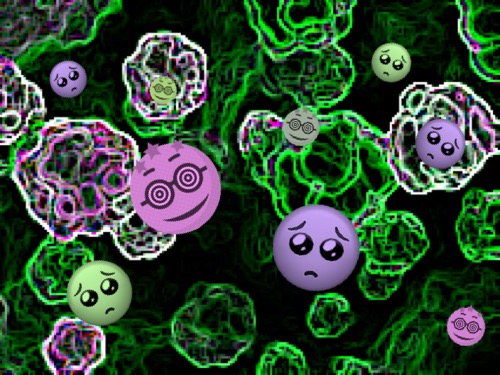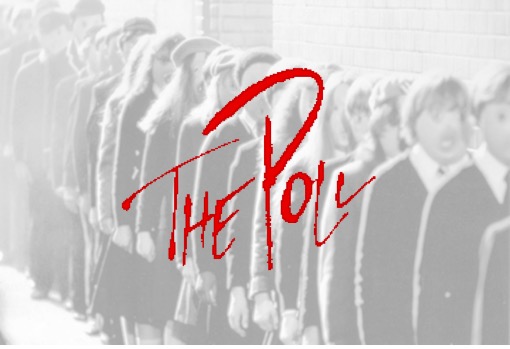The Empty Cinema

Robert Downey Jr.’s failures in Doolittle are the failures of American film today.
Robert Downey Jr. is the only actor of his generation to play memorable characters whom audiences really and truly love. He resurrected his career, after all, playing Iron Man for more than a decade, taking breaks along the way to play Sherlock Holmes in two very successful Guy Ritchie movies. His attempted third, Dolittle, falls flat, however. It offers an object lesson in how to ruin a blockbuster—and children’s fantasies.
Dolittle is supposed to have cost around $200 million, including extensive reshoot costs, usually a bad sign for a production. Worse, it was pushed back several times in 2019 and eventually all the way to January of this year, another bad sign: January is Hollywood’s post-Christmas dumping ground. To underscore the absurdity of all this, though the film boasts an incredible cast of Oscar winners (mostly doing animal voices, admittedly), it was treated like trash by Universal studio!
But after I saw it, this humiliating treatment started to make sense. The plot is very thin and at the same time gratuitous: a young Queen Victoria is dying of a mysterious illness, so obviously Dolittle—Robert Downey, Jr., who produced the movie with his wife—is commissioned to sail to the ends of the world and seek a magical remedy, accompanied by his animated menagerie of wild animals who are cute, tame, and excruciatingly boring.
Well, if you’re going to wow audiences with royalty, the British Empire, and all the charm of a period piece—essentially Downey Jr. doing a variation on Johnny Depp’s flamboyant Captain Jack Sparrow—you should first know what’s so interesting about the British Empire, and about its subjects’ adventures in search of nature to escape the inevitable advance of scientific and even moral progress. Instead, we get pretty backgrounds and action whizzing past at breakneck pace, with a design more fit for Hallmark than for a blockbuster.
The Victorian age is an endless source of Romantic storytelling—in Dolittle, it’s England, the high seas, and South-East Asia! But instead of aristocracy and nature, you get another session of Fantasy Therapy, in which endearing characters overcome their trauma and, in the process, lose any interest whatsoever. Dolittle has lost his too-spirited wife (more of an adventurer than him); his pet polar bear is perpetually cold; and his pet gorilla is cowardly. These rather dull problems are given rather dull solutions as the movie tromps along.
Worse still, everything is animated. And animation, motion capture notwithstanding, is killing expressive acting instead of enhancing it—as we saw with last year’s poker-faced Lion King. You might think it’s impossible to make charismatic mega-fauna dull, but you’d be wrong—it can be done and Dolittle has done it! So goodbye to animals offering metaphors for moral qualities we should learn about!
Therapists and Heroes
Now, the point of the story is this: the eccentric and self-loathing protagonist will show all those stuffy Victorians that he’s cool, and save everyone from their mental issues or boring lives through fantasy, if only he can reluctantly embrace his gifts and live down his past. Not only is this a boring rehash of a million other bad stories selling Fantasy Therapy, it’s obsolete: audiences now worship young, do-gooder protagonists, as in Star Wars.
This is a typical expression of Hollywood’s desperate attempt to resurrect that old magic and keep audiences entranced. This eagerness makes for more flops the more audiences abandon every studio but Disney and turn to streaming instead of theaters. And why not—the only way Dolittle, which lacks a compelling adventure, antagonist, and protagonist, can be enjoyed is on a lazy Sunday, if the family accidentally streams it—probably on Netflix.
Since it’s both a failure and typical, the movie is an object lesson. First, stories have to have a purpose, despite the vulgar delusions about MacGuffins or the friends we made along the way. Stories plainly disclose what we think desirable and good. Magic shows with wondrous visuals mean nothing otherwise and are soon forgotten, just like Avatar. As Aristotle says, we act to a purpose—to secure the good.
Secondly, stories that are serious about what we love and wish to secure should be equally serious about what we fear, or what gets in the way. It is our misunderstandings and our weaknesses that we recognize in memorable bad guys, and this offers also a measure of the distance between reality and poetry—where everything is made up in advance, there are no surprises, and insight therefore can abound.
Thirdly, stories serious about the impediments to our happiness should in turn be serious about who might secure that happiness or guide us to it. We are not so self-obsessed or petty that we cannot admire greatness; nor so dull that we cannot imagine ourselves improving. We just need the help of the poets of our time who weave not mere fantasies, but stories that remind us of what we know about the virtues we possess or wish to acquire.
The open secret of cinema is that we want to see ourselves onscreen—but especially that version of ourselves, that future you or future me, who is capable of heroism. That character who succeeds because he deserves to succeed—something comical, but noble, something dramatic, but endearing. It is stupid and small-minded to deny audiences their higher aspirations in the name of liberal Fantasy Therapy, reducing everything to a session with an upbeat hipster shrink.
Unfortunately, the movies are reduced to bad TV. Don’t get me wrong, there’s also good TV—behold the Marvel show. A few episodes a year, plus season finales, and it’s always good guy beats bad guy, and then we’re back where we started, awaiting new episodes. But Disney has already cornered that market—anyone else interested in making his fortune had better bet on new heroes, new villains, and adventures that disclose what we really and truly want.
What Movies Are, or Should Be
Our future and the future of cinema are connected. We must abandon the liberal delusion that we can talk death to death, magically overcome our fears, live the dream, and achieve some fantastic self-admiration. Only then will we tell worthwhile stories, without this damnable sentimentality. Cinema isn’t supposed to be a dream, but a wake-up to realities that we can hardly see in broad daylight, because we’re too busy or distracted.
Connecting philosophy to the obvious is the way out of this impasse. The movie could have been anything from an Aristotelian examination of the soul’s faculties and the way they are present in various animals to an examination of the limits of modern science. Such movies could vindicate our experience, which we share with children, over the supposedly sophisticated adult world of TED talks and “what studies show,” which is mostly bullshit.
The American Mind presents a range of perspectives. Views are writers’ own and do not necessarily represent those of The Claremont Institute.
The American Mind is a publication of the Claremont Institute, a non-profit 501(c)(3) organization, dedicated to restoring the principles of the American Founding to their rightful, preeminent authority in our national life. Interested in supporting our work? Gifts to the Claremont Institute are tax-deductible.
Does politics have an answer to digital disenchantment?
The case of CNN.
Voters are growing sick of being sold as news.






